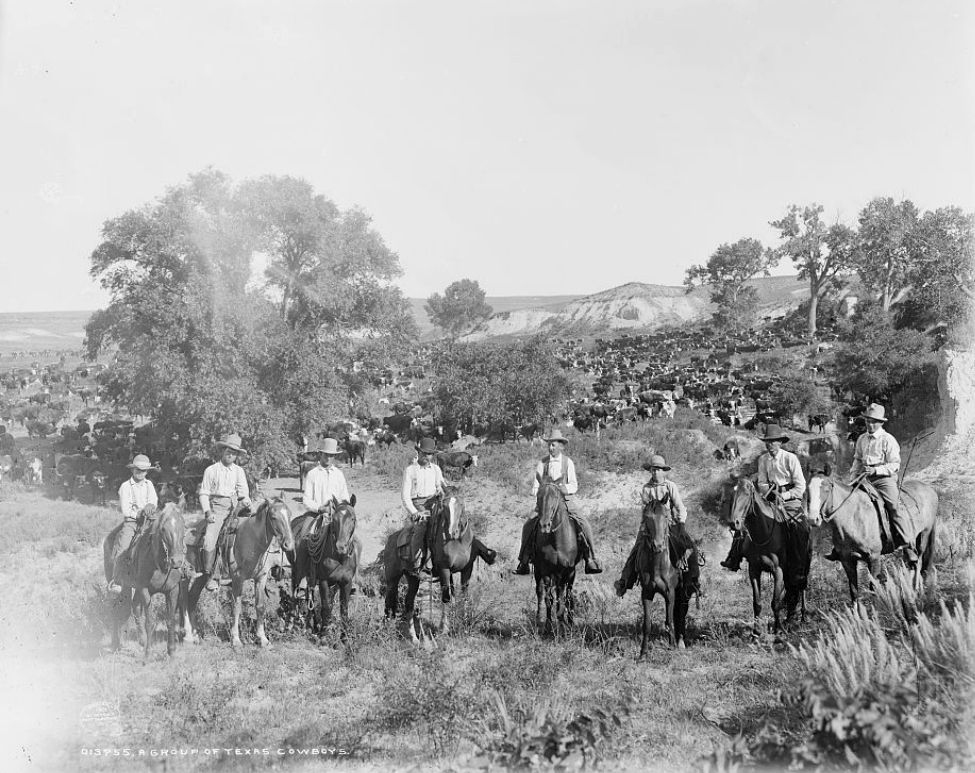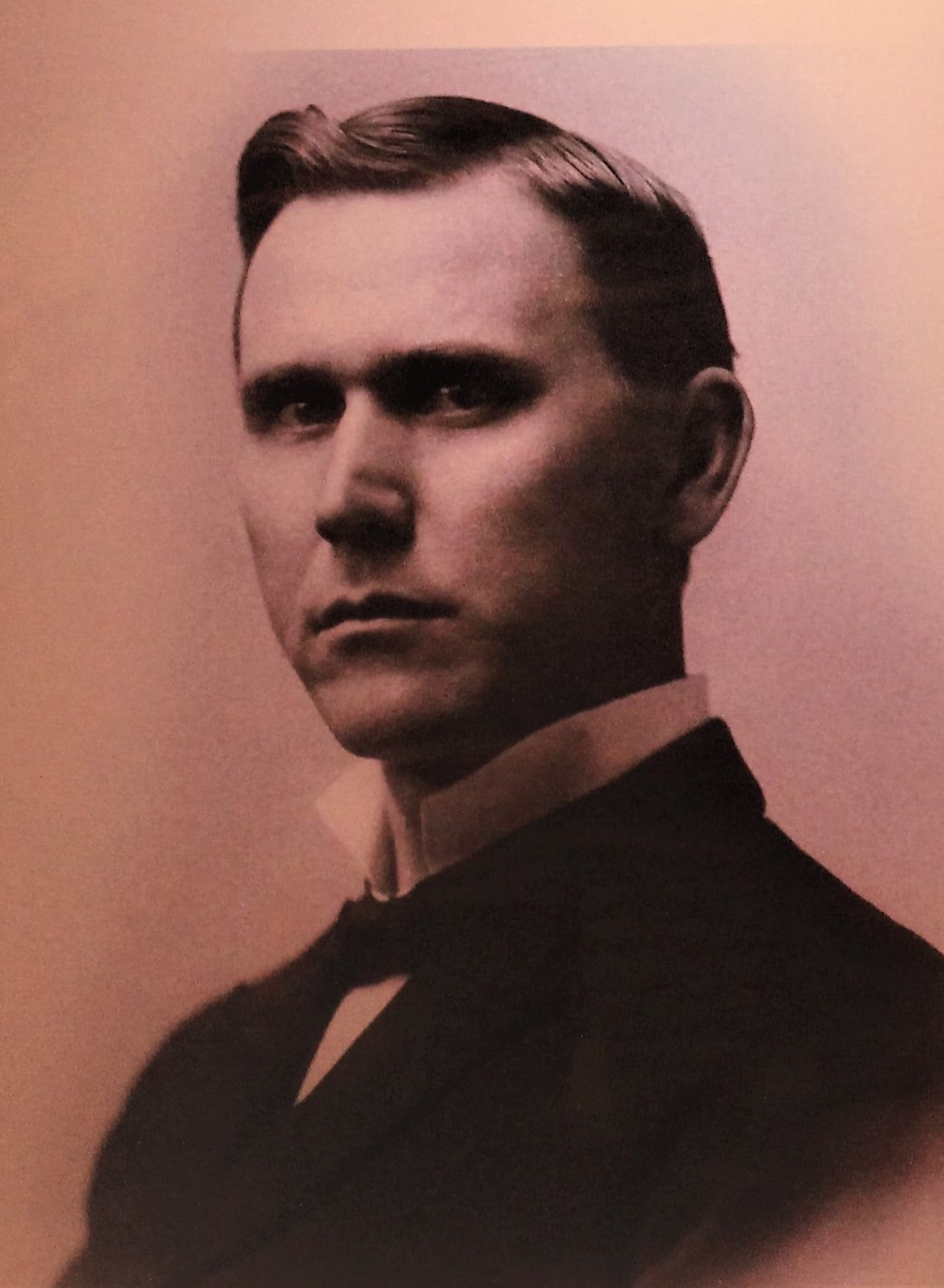George W. Truett: Mission to the Cowboys
Guest post by David T. Crum

William Henry Jackson, Public domain, via Wikimedia Commons
George W. Truett (1867–1944) grew the First Baptist Church of Dallas to record numbers. After his death in 1944, his funeral was the largest attended service in Dallas history. The man was a legend in the Baptist community and Southern Baptist Convention. A graduate of Baylor University, Truett served as a financial secretary at the institute, being credited for taking the school out of debt. However, he was most famous for his legacy in Dallas as a faithful pastor to his beloved congregation. Later, he served as the SBC and Baptist World Alliance president. Truett was a chaplain in World War I and led his church through World War II by preaching about the dangers of the time, and the importance of surrendering to Christ.
When exploring the ministry of Truett, it is clear that his purpose remained to spread the Gospel and seek souls for Jesus Christ. A humble man, Truett never sought accolades yet remained sincere in his evangelistic efforts. A little-known fact is that Truett had a missional heart to reach Texas cowboys. During his ministry, Truett sought to travel to isolated Texas locations and share the Gospel with these men and their families. This brief article presents his mission to the cowboys.
The Need
Cowboys have historically been a solitary people group, often misunderstood. Like the mountain man, the cowboy remained an outsider, or loner, by choice. The stereotypical cowboy was a tough, fearless man, able to survive extreme weather and living conditions on his own. The cowboy had a unique bond with nature, often sleeping outside and contemplating the stars. Renowned historian Walter Prescott Webb wrote, “The tasks of the cowboy had to do with cattle. His life was conditioned by cattle, and every part of it was adapted to cattle.” In early Western history, gun manufacturers created the revolver handgun for cowboys to protect themselves against raids. The most notable weapon, the Colt 45, is credited with saving lives and detouring sneak attacks.
Cowboys worked either alone or with a few other men. Either way, they remained in desolate lands, often hundreds of miles away from outsiders. It took a special person to endure such a lifestyle. Webb explained, “The Western man of the old days had little choice but to be courageous.” Adding, “Where men are isolated and in constant danger or even potential danger, they will not tolerate the coward. They cannot tolerate him, because one coward endangers the whole group.”
Of course, lifestyle changes and customs affected cowboys as time passed. Despite this, cowboys have retained their unique identity throughout history and will always be associated with the American West. During both the 19th and 20th centuries, cowboys had several reputations, some unflattering. These infamous men were known for their involvement in saloons, poker games, heavy drinking, and prostitution. In the 20th century, saloons and prostitution became less common, but this crowd continued drinking heavily and gambling. Likewise, they maintained their standing as a tough, intimidating group that cursed up a storm and had little patience for outsiders. Historians agree that the Western cowboys were often rebellious young men, usually no older than thirty.
Truett to the Cowboys
By the time Truett’s mission to the cowboys started, the characteristics of the cowboys slightly changed. In the early 1900s, several were married, but sin still ran rampant. In the heart of prohibition, cowboys often disobeyed the law of the land and enjoyed their liquor. Truett, a staunch Southern Baptist, held firm positions on the abuse and use of alcohol. Powhatan James wrote of Truett, “Dr. Truett can hate the sin and love the sinner and make the sinner understand that he feels both emotions.” Starting in 1902, Truett made an almost yearly visit to evangelize and appear before the cowboys of West Texas. Describing the characteristics of the Texan cowboy he said, “They are unspoiled; they are children of nature; they are artless, they are sincere as the sunlight; they are men of tremendous convictions; they face issues and decide them; they are empire builders.” In another description, Truett added, “You know that cowboys are a very elemental, simple, unspoiled folk. First impressions are lasting. They either like you or they don’t like you, and there isn’t any in-between.” Evangelizing such a crowd might intimidate some preachers, but not Truett; he always looked forward to his yearly visits and grew a greeting crowd from hundreds to thousands yearly.
Baptist minister Joseph Fort Newton said of Truett, “He is an evangelist of the loving heart, not of threats, and thunders, and even in his most earnest moods his gentleness is palpable, his good will unfailing. His thought and language are of the simplest.” It appeared to be Truett's demeanor and confidence that garnered the cowboys' attention. He was not judgmental; he underlined the message of Christ’s love for the sinner. He preached of sin but always highlighted the importance of faith in any sermon. In one message to his mountain crowd, Truett preached, “Faith is the foundation Grace of Christian life. No other grace is possible without the Faith Grace. Without faith, it is useless to try to please God.” He added: "Unbelief and not sin will keep man out of heaven, for man will be forgiven of his sin, but he cannot be forgiven of any sin without faith in God and God’s work. Unbelief shuts the doors of man’s souls and unbelief is running the faith of Christians today."
As Truett’s Dallas ministry grew, so did his cowboy mission. Eventually his wife, Josephine, accompanied him on visits. She too, played her own role in evangelizing cowboy wives. Describing the experience, Truett later remarked:
I go every year to the cattlemen of the West, to their annual camp meeting, and have been thus going to them for a week every year, for 15 years. The most interesting week I ever live, in some respects, is that week; and among the most interesting men—the biggest, the finest, in many respects, that I have ever touched, are those stalwart men.
Showcasing his success, the annual revival typically grew in large numbers. Truett’s reputation of being a friend to the cowboys became a well-known fact across the country. The crowd varied; some men and women claimed Jesus Christ as their Lord and Savior, others remained outside the faith, and several left the church from their youth. In one sermon to the cowboys, Truett reflected, “I was searching my mind, wondering what I should say to this remarkable audience, so willing and eager to hear.” He continued:
I spoke to them on the Love of God. They heard it, all attention, and the silence was tense at the end. Never since have I seen the stars glitter so brightly as they did that night in the crisp atmosphere of the ranges. The sermon ended in prayer. Then, everyone arose. No word was spoken, no sign given, no physical response of any kind. Everybody went to bed at once—the women to the two rooms of the cabin, the men on the ground under the glittering stars. I couldn’t sleep very well, and after trying for a while, I sat up. Presently a cowboy got up, then the one beside him. They threw off their blankets and came over to me. They said: “We’ve got something to tell you.” I arose, and the two men led the way down a trail through the sagebrush. They walked about 200 yards without saying a word. Then they stopped. “We just wanted to tell you, parson—me and Bill—that if you keep up that lick o’ preachin,’ you give us tonight, we’ll all be converted, every plumb one of us.”
Such accounts typically occurred each year. In another instance, a tough, large cowboy explained to Truett he did not realize “his cattle, his home, and his soul” were God’s. The cowboy asked Truett to pray for him, and the man surrendered his life to Christ.
Truett’s reputation as a missionary to the cowboys was not limited to Texas. New Mexico evangelists reached out to him for his assistance in their own tent revival. Truett and other Baptist preachers headed to Silver City, New Mexico, where they made an impact. William Royall shared a story:
We had a verse of Scripture, a prayer, and then each man, Christian or non-Christian, was called on in order to say something. Out of a hundred men scarcely a half dozen refused to say something. Such eloquence has never been heard by me as some of those rugged cowmen and cowboys told of their experiences before and after knowing God.
Truett challenged cowboys to think of their salvation. He taught that anyone from anywhere could be forgiven for their trespasses. In such a lonely and desolate environment, cowboys were assured they were not alone. If they maintained faith in Christ, their life would never remain the same.
The legacy lives on
Billy Hathorn, CC BY-SA 4.0 <https://creativecommons.org/licenses/by-sa/4.0>, via Wikimedia Commons
Truett’s legacy continues today. Certainly, he remains a legend in American and Baptist church history, growing record crowds by the eloquence of his speech. He preached to the average person and proudly sat amongst the sinners—the tax collectors of his day—to share the Gospel.
While others may have distanced themselves from such a rough group, Truett longed for his yearly cowboy visits. He developed lasting friendships with most of the company and faithfully served his Savior in evangelizing the lost. Lt. Gov. Barry Miller said of Truett, “All the great statesmen that Texas has ever had have not done as much as Dr. Truett to instill the ideals of Christian citizenship into the hearts of the people. He is the greatest of living Texans.”
David T. Crum holds a Ph.D. in Historical Theology. He serves as an Assistant Professor of History and Dissertation Chair. His research interests include the history of warfare and Christianity. For more on faith in the American West, read CH #66: How the West Was Really Won.




